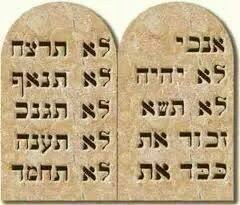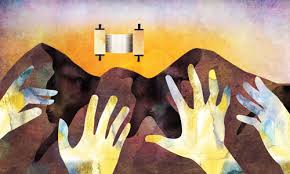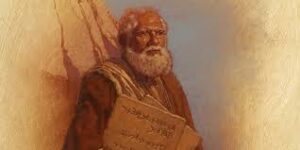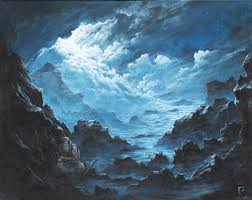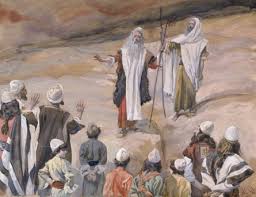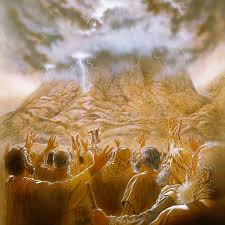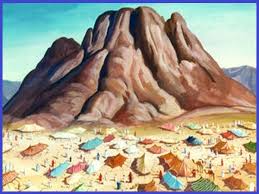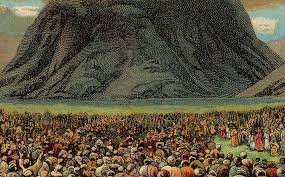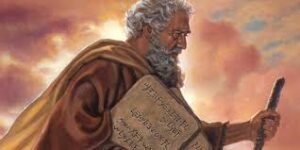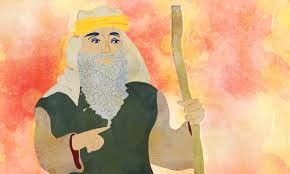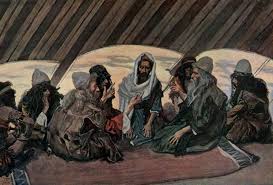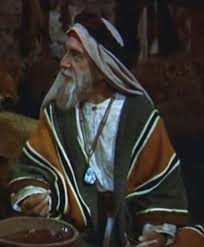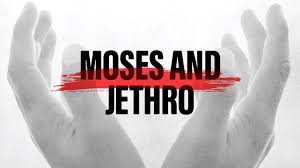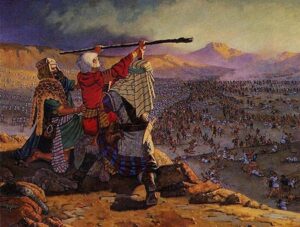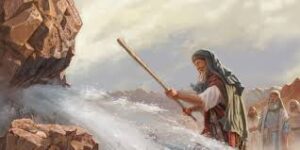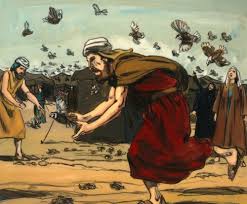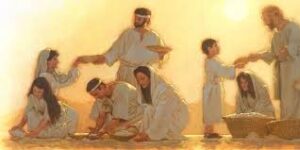Dk – You Shall Have No Other Gods Before Me 20: 3
You Shall Have No Other Gods Before Me
20: 3
You shall have no other gods before Me REFLECT: Has God’s reign in my life been replaced by another object or person I would rather serve? Do I love other things more than I love the LORD?
You shall have no other gods in addition to Me (Exodus 20:3).
For even if there are so called gods, whether in heaven or on earth (as indeed there are many “gods” and many “lords”), yet for us there is but one God, the Father, from whom all things came and for whom we live; and there is but one Lord, Jesus Christ, through whom we have our being (First Corinthians 8:5-6).

God condemns polytheism, which is the worship of more than one god. In that day this was a very difficult teaching because it was popular to worship many gods. Indeed, Israel had just escaped from Egypt, where thousands of gods were worshiped. Surprisingly, we learn that even the Israelites had worshiped false gods while living in Egypt (Ezeki’el 20:5-8). Unfortunately, Isra’el often disobeyed this very first command by worshiping the idols of other nations.363 This resulted in the northern Kingdom being taken over by Assyria and the southern Kingdom taken exile in Babylon.
Today, the temptation is to worship no god at all. But the decision before us is not between atheism or God. It is not the issue of God or no God. That is not our choice. The question is which deity we will worship – the true and living God who came to us as Jesus Christ or a substitute god? Inevitably we must look to something beyond ourselves. This something helps us make choices in life. It gives us a set of values or priorities that serve as a reference point. It becomes the determining factor in our lives so that gradually and perhaps without knowing it, we become like the God or god we worship.
Every deity stamps his worshiper with his trademark (see the commentary on Revelation, to see link click Dp – The Mark is the Name of the Beast or the Number of His Name), and your god could be leaving his mark upon your life today. Martin Luther said it beautifully, “Whatever the heart clings to, whatever the heart relies on, that is your god.” We must let ADONAI be God, the true and living God. That’s why the Bible opposes every form of idolatry. The greatest sin described in the Bible is not breaking the commandments but rejecting God, or idolatry. Idolatry is misplaced allegiance, making a commitment, having a love, a priority, to a god that displeases and dethrones the true and living God.364 There is only room for one king on the throne of your heart.
But there are other gods besides idols of wood and stone. Money, pleasure, sex, drugs, science, fashion, fame, music, gluttony, sports and a score of other things can take the rightful place of God in our lives. We can even take good things and make gods out of them. For example, Buzz Aldrin, the second man on the moon did that very thing. For years he studied, earned a doctorate, worked hard, dreamt, and disciplined himself. Finally he was chosen to go with Neil Armstrong on the historic mission to the moon. But after the mission he had an emotional breakdown. It didn’t have anything to do with mission. He became very disillusioned after working hard and attained every goal along the way. But he found it all empty when it was over, He had taken a good thing and made a god out of it. And it did what all false gods do, it turned around and destroyed him. That’s what always happens when we turn God’s gifts into false gods.
So does it matter who the God of your life is? It certainly does! It is the difference between eternal life and eternal death. You shall have no other god’s before Me. Let ADONAI be God in your life. Jesus restated the first commandment when He said: No one can serve two masters. Either he will hate the one and love the other, or he will be devoted to the one and despise the other (Matthew 6:24). We cannot love and serve more than one God. If we do, we become fragmented. Polytheism in one’s heart will produce polytheism in one’s personality and emotions. The Bible calls it idolatry. Psychiatry calls it neurosis. The point is that we were built for only one God.
So, who is your God? And where is your God? On the throne? Or do you have a divided loyalty? There is only room for only one person on the throne at a time. Who is on yours? The first commandment is basically saying: I am the Lord your God. I am your Savior. I am your Deliverer. You belong to Me. I am sovereign over you. I am yours and you are mine. This commandment will be the only commandment because I am the only God. Therefore, you shall have no other gods in addition to Me.365



